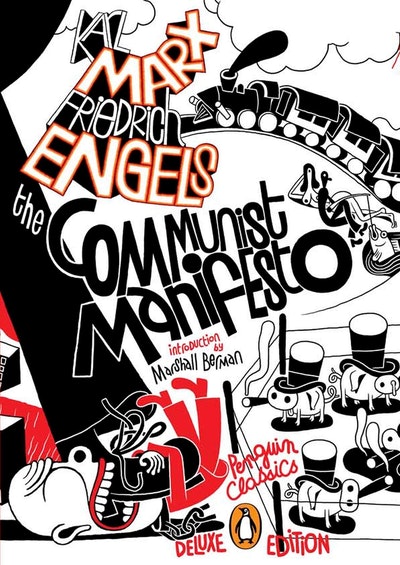Marx and Engel's landmark treatise - in a graphic deluxe edition
One of the most important and influential political theories ever formulated, The Communist Manifesto is a revolutionary summons to the working class-an incisive account of a new theory of communism that would be brought about by a proletarian revolution. Arguing that increasing exploitation of industrial workers will eventually lead to a rebellion in which capitalism will be overthrown, Marx and Engels propose a vision of a society without classes, private property, or a state. The theoretical basis of political systems in Russia, China, Cuba, and Eastern Europe, The Communist Manifesto continues to influence and provoke debate on capitalism and class.
For more than seventy years, Penguin has been the leading publisher of classic literature in the English-speaking world. With more than 1,700 titles, Penguin Classics represents a global bookshelf of the best works throughout history and across genres and disciplines. Readers trust the series to provide authoritative texts enhanced by introductions and notes by distinguished scholars and contemporary authors, as well as up-to-date translations by award-winning translators.
